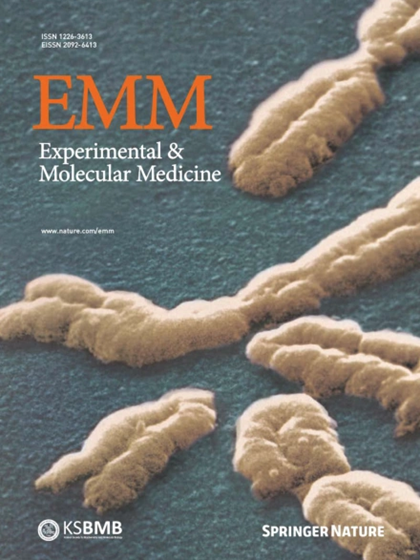Advancing pancreatic cancer research and therapeutics: the transformative role of organoid technology
IF 9.5
2区 医学
Q1 BIOCHEMISTRY & MOLECULAR BIOLOGY
引用次数: 0
Abstract
Research on pancreatic cancer has transformed with the advent of organoid technology, providing a better platform that closely mimics cancer biology in vivo. This review highlights the critical advancements facilitated by pancreatic organoid models in understanding disease progression, evaluating therapeutic responses, and identifying biomarkers. These three-dimensional cultures enable the proper recapitulation of the cellular architecture and genetic makeup of the original tumors, providing insights into the complex molecular and cellular dynamics at various stages of pancreatic ductal adenocarcinoma (PDAC). We explore the applications of pancreatic organoids in dissecting the tumor microenvironment (TME); elucidating cancer progression, metastasis, and drug resistance mechanisms; and personalizing therapeutic strategies. By overcoming the limitations of traditional 2D cultures and animal models, the use of pancreatic organoids has significantly accelerated translational research, which is promising for improving diagnostic and therapeutic approaches in clinical settings, ultimately aiming to improve the outcomes of patients with pancreatic cancer. Pancreatic cancer is a challenging disease to study and treat. This article discusses how researchers have developed pancreatic organoids to better study this cancer. Organoids are created by growing cells in a specialized 3D matrix, allowing them to form structures that resemble tissues found in the body. This method is more effective than traditional 2D cultures because it better replicates the natural environment of the cells. Researchers use these organoids to study cancer progression, test new drugs, and understand genetic changes in tumors. They can be made from small tissue samples, making them useful for studying advanced cancer stages where tissue is scarce. The findings from organoid studies help identify potential new treatments and improve our understanding of pancreatic cancer biology. In conclusion, pancreatic organoids offer a promising tool for advancing cancer research and developing personalized treatments. This summary was initially drafted using artificial intelligence, then revised and fact-checked by the author.

推进胰腺癌研究和治疗:类器官技术的变革作用。
随着类器官技术的出现,胰腺癌的研究发生了转变,提供了一个更好的平台,可以在体内密切模仿癌症生物学。这篇综述强调了胰腺类器官模型在理解疾病进展、评估治疗反应和识别生物标志物方面所取得的关键进展。这些三维培养能够正确再现原始肿瘤的细胞结构和基因组成,为胰腺导管腺癌(PDAC)不同阶段的复杂分子和细胞动力学提供见解。探讨胰腺类器官在肿瘤微环境解剖中的应用;阐明癌症进展、转移和耐药机制;个性化治疗策略。通过克服传统二维培养和动物模型的局限性,胰腺类器官的使用显著加快了转化研究,有望改善临床环境中的诊断和治疗方法,最终旨在改善胰腺癌患者的预后。
本文章由计算机程序翻译,如有差异,请以英文原文为准。
求助全文
约1分钟内获得全文
求助全文
来源期刊

Experimental and Molecular Medicine
医学-生化与分子生物学
CiteScore
19.50
自引率
0.80%
发文量
166
审稿时长
3 months
期刊介绍:
Experimental & Molecular Medicine (EMM) stands as Korea's pioneering biochemistry journal, established in 1964 and rejuvenated in 1996 as an Open Access, fully peer-reviewed international journal. Dedicated to advancing translational research and showcasing recent breakthroughs in the biomedical realm, EMM invites submissions encompassing genetic, molecular, and cellular studies of human physiology and diseases. Emphasizing the correlation between experimental and translational research and enhanced clinical benefits, the journal actively encourages contributions employing specific molecular tools. Welcoming studies that bridge basic discoveries with clinical relevance, alongside articles demonstrating clear in vivo significance and novelty, Experimental & Molecular Medicine proudly serves as an open-access, online-only repository of cutting-edge medical research.
 求助内容:
求助内容: 应助结果提醒方式:
应助结果提醒方式:


